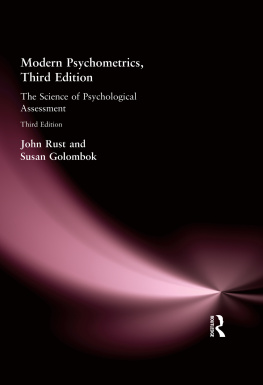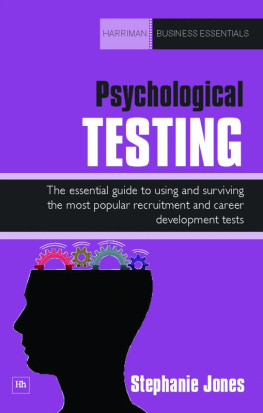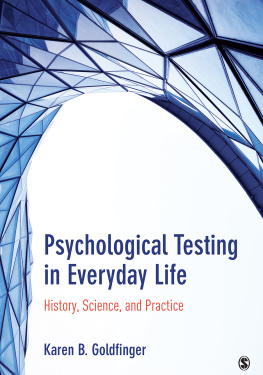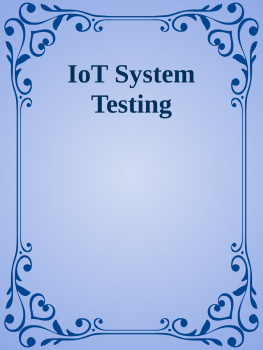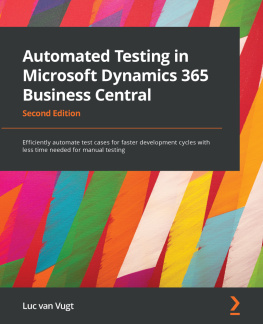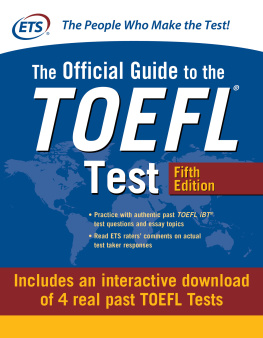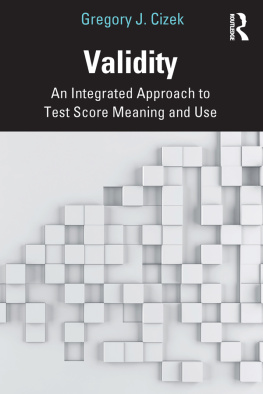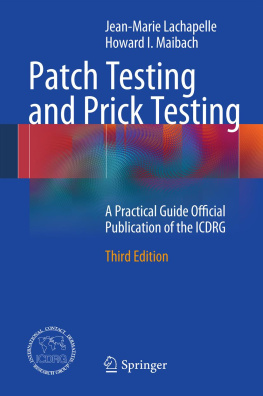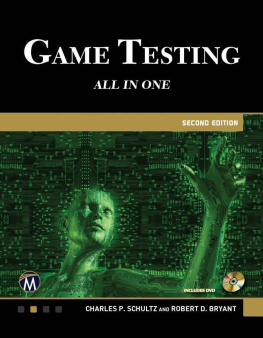Modern Psychometrics
Today psychometrics plays an increasingly important role in all our lives as testing and assessment occurs from preschool until retirement. This book introduces the reader to the subject in all its aspects, ranging from its early history, school examinations, how to construct your own test, controversies about IQ and recent developments on testing on the internet.
In a practical step-by-step guide to the development of a psychometric test is provided. This will enable anyone wishing to develop their own test to plan, design, construct and validate it to a professional standard. This third edition has been extensively updated and expanded to take into account recent developments in the field, making it the ideal companion for those studying for the British Psychological Societys Certificates of Competence in Testing.
Modern Psychometrics combines an up to date scientific approach to the subject with a full consideration of the political and ethical issues involved in the large scale implementation of psychometrics testing in todays highly networked society, particularly in terms of issues of diversity and internationalism. It will be useful to students and practitioners at all levels who are interested in psychometrics.
John Rust is Director of The Psychometrics Centre at the University of Cambridge and a Senior Member of Darwin College.
Susan Golombok is Professor of Family Research at the University of Cambridge, Director of the Centre for Family Research and a Fellow of Newnham College.
Modern Psychometrics
The science of psychological assessment
THIRD EDITION
John Rust and Susan Golombok
First published 2009
by Routledge
27 Church Road, Hove, East Sussex BN3 2FA
Simultaneously published in the USA and Canada
by Routledge
270 Madison Ave, New York, NY 10016
Routledge is an imprint of the Taylor & Francis Group, an informa business
2009 Psychology Press
Typeset in Century Old Style by RefineCatch Limited, Bungay, Suffolk Printed and bound in Great Britain by TJ International Ltd, Padstow, Cornwall Paperback cover design by Andy Ward
All rights reserved. No part of this book may be reprinted or reproduced or utilised in any form or by any electronic, mechanical or other means, now known or hereafter invented, including photocopying and recording, or in any information storage or retrieval system, without permission in writing from the publishers.
This publication has been produced with paper manufactured to strict environmental standards and with pulp derived from sustainable forests.
British Library Cataloguing in Publication Data
A catalogue record for this book is available from the British Library
Library of Congress Cataloging in Publication Data
Rust, John, 1943
Modern psychometrics: the science of psychological assessment / John Rust and Susan Golombok. 3rd ed.
p. cm.
Includes bibliographical references and index.
1. Psychometrics. I. Golombok,
Susan. II. Title.
BF39.R85 2009
150.28'7dc22 2008023482
ISBN 978-0-415-44216-9 (hbk)
ISBN 978-0-415-44215-2 (pbk)
Contents
It is now almost twenty years since Modern Psychometrics was first published, and in that time the science has continued to stride ahead. Today, many of the future possibilities tentatively discussed in the 1st and 2nd editions are now accepted realities. Furthermore, the main tenet of the book, that psychometrics is so central to modern society that it cannot be ignored, has become the accepted view. Arguments about psychometrics today are no longer about the whether but about the how. Since the publication of the 2nd edition in 1999, there have been major advances in the field, helped enormously by the introduction of a whole new generation of statistical software that is able to model many of the subtleties present in psychometric tests that had previously eluded precise elucidation.
The early chapters of this 3rd edition continue to consider the role of sociobiology and its precursors on the development of the psychometrics movement. A proper understanding of these issues remains crucial to psychometric practitioners. The major lesson of the troublesome sociobiological disputes of the past century was that selection and assessment are important social processes and that the psychometrician cannot stand apart from ideological and political debate. In particular, psychometrics, if it is to fulfil its function of fair assessment and selection, must take a stand on issues of racism and injustice. This is particularly so in view of the overt racism of so many of its historical advocates. Today, we are indebted to the work of Professor James Flynn in making clear the implications of the decade-by-decade rise in IQ scores since IQ tests were first introduced over a century ago (a phenomenon that has become known as the Flynn effect), and in showing us how hollow were their arguments.
The chapters looking at the practice and application of testing and test construction pay particular attention to current issues, such as the use of item response theory, and statistical modelling. Knowledge-based tests of ability, aptitude and achievement are considered, as well as person-based tests of personality, integrity, clinical symptoms, mood and attitude.
The book is written in two parts. The first part deals with theoretical and more general issues in psychometrics. The second part is a step-by-step guide on how to construct psychometric questionnaires. This progresses through all the stages of test construction, from definition of the original purpose of the test to its eventual validation. The book is intended to provide both a theoretical underpinning to psychometrics and a practical guide.
John Rust
Susan Golombok
University of Cambridge
We wish to acknowledge the important contribution of Xiao Li and Jing Miao to the 3rd Edition of this work in providing the translation for the Chinese Edition. Xiao Li also researched the origins of assessment in ancient China, and made an important contribution to in consideration of the cross-cultural aspects of personality testing.
Chapter
The development of psychometrics
Psychometrics is the science of psychological assessment, and is normally seen as a branch of psychology; but its impact is much broader than this. The scientific principles that underpin psychometrics apply equally well to assessment in education and in clinical or occupational contexts, and the early psychometricians were equally at home in all these fields. Since then, paths have often diverged, but have generally reunited as the importance of advances made in each context come to the attention of those in the others. Currently, the great advances that are being made in statistical modelling are having a significant impact on the application of psychometrics in both the educational and occupational fields. The lead is coming from psychometric epidemiologists, who are analysing large-scale survey data, including questionnaires. These are exciting times. But the history of psychometrics goes back a long way.
Employers have assessed prospective workers since the beginnings of civilization, and have generated consistent and replicable techniques for doing this. China was the first country to use testing for the selection of talents. Before 500 BC, Confucius had argued that people were different from each other. In his words their nature might be similar but behaviours are far apart, and he differentiated between the superior and intelligent and the inferior and dim (Jin 2001). Mencius (372 BC to 289 BC) believed these differences were measurable. He advised assess, to tell light from heavy; evaluate, to know long from short (Jin 2001). Xun Zi (310 BC to 238 BC) built on this theory and advocated the idea that we should measure a candidates ability to determine his position (in the court) (Qi 2003). Thus, over 2000 years ago much of the fundamental thinking that underpins intelligence testing was already in place, as were systems that used testing in the selection of talents. In fact, there is evidence that talent selection systems appeared in China even before Confucius. In the Xia Dynasty (between the 21st century BC and the 17th century BC), the tradition of selecting officers by competition placed heavy emphasis on physical strength and skills, but by the time of the Xi Zhou Dynasty (1046 BC to 771 BC) the content of the tests had changed. The Emperor not only assessed candidates on the basis of their shooting skills, but also in terms of their courteous conduct and good manners. From then on, the criteria used for the selection of talent grew to include the Six Skills (arithmetic, archery, horsemanship, music, writing and skills in the performance of rituals and ceremonies), the Six Conducts (filial piety, friendship, harmony, love, responsibility and compassion) and the Six Virtues (insight, kindness, judgement, courage, loyalty and concord). During the Epoch of Warring States (770 BC to 221 BC), oral exams became more prominent. In the Qin Dynasty, from 221 BC, the main test syllabus primarily consisted of the ability to recite historical and legal texts, calligraphy and the ability to write official letters and reports. The Sui and Tang Dynasties (AD 581 to AD 907) saw the introduction of the Imperial Examination, a nationwide testing system that has since become the main method for selecting imperial officials. Formal procedures required, then as now, that candidates names should be concealed, independent assessments by two or more assessors should be made, and that the conditions of examination should be standardised. The pattern set down then of a syllabus of material that should be learned, and an examination to test the attainment of this knowledge has not changed in framework for 3000 years and was in extensive use in Europe, Asia and Africa even before the industrial revolution.

